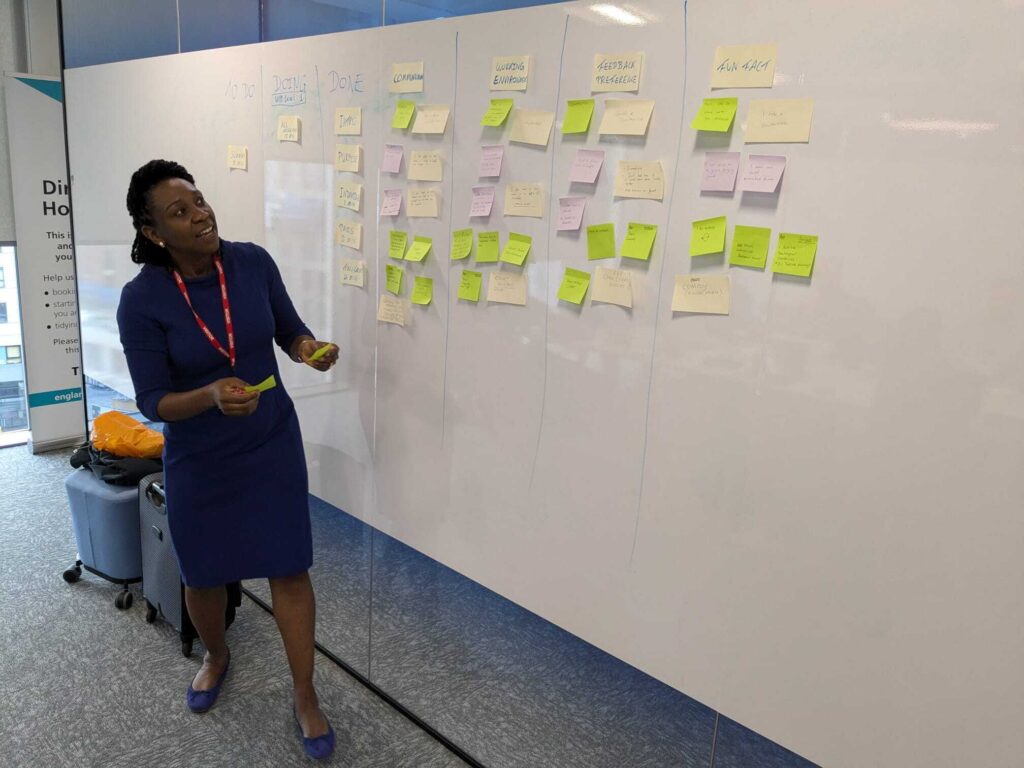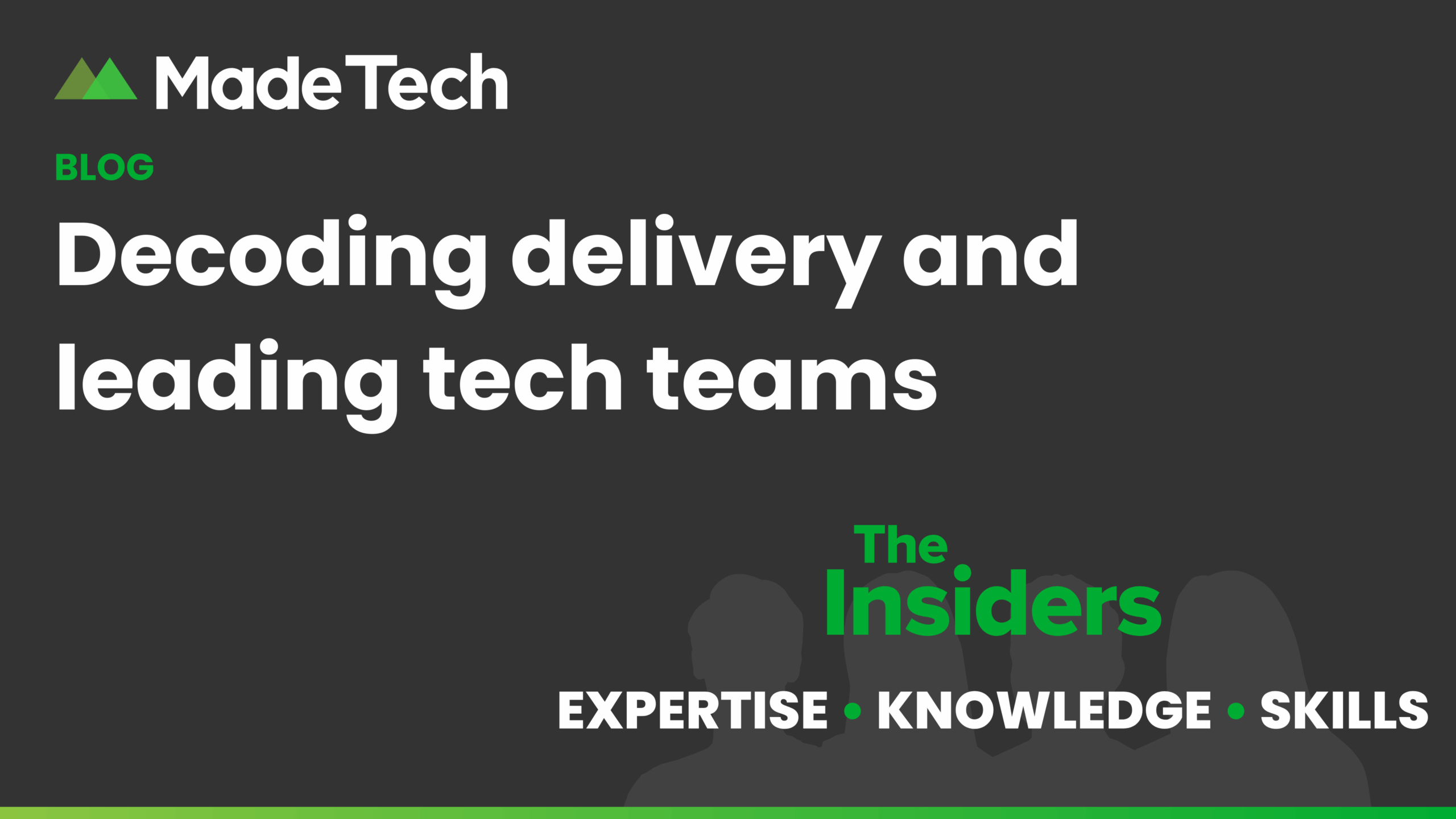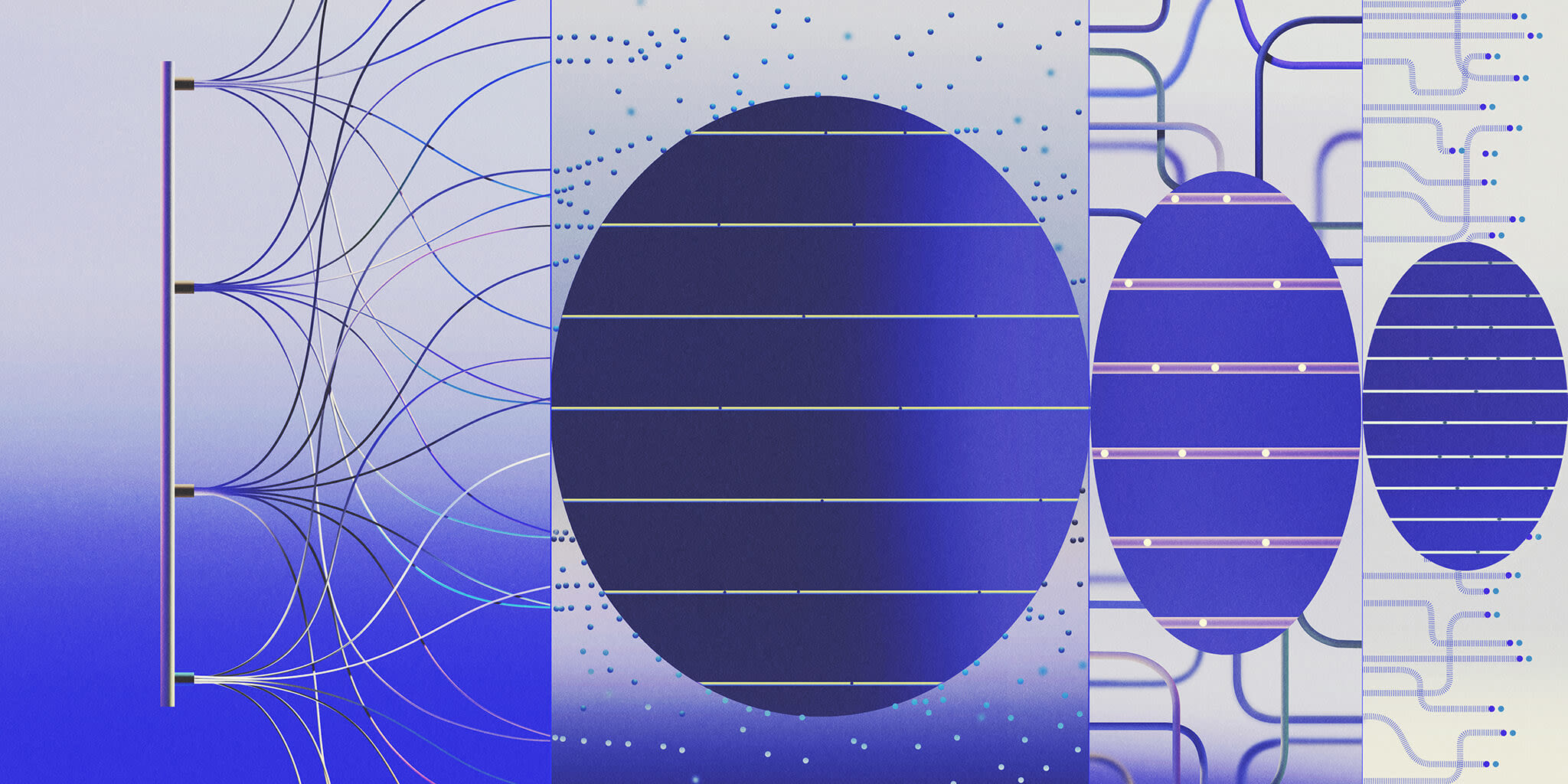From coding to leading tech teams, Sade’s journey is a fascinating one. Discover how her background as a software engineer and her natural people skills come together in her role as a lead delivery manager at Made Tech.
Q: Hi Sade, can you tell us about your career journey into delivery management?
I spent 8 years in the digital field as a software engineer. But if I’m honest, I realised I wasn’t really a code person, it wasn’t my forte. It wasn’t my flow, but I knew I didn’t want to lose my digital edge and the software skills I’d learned.
I wanted to go into another profession and take advantage of the technical knowledge I already had. That led me to project management starting with PRINCE2, and about 13 years ago I discovered Agile.
That kind of role really resonated with my strengths in collaboration, communication and delivery. Over time, this naturally evolved into a delivery manager role, where I now get to bring together both my technical background and people skills to lead high-performing teams and deliver meaningful outcomes.
Q: Did you face any challenges during your career transition?
Yes, definitely. One of the biggest challenges during my transition was shifting from a detailed technical mindset to a broader strategic perspective.
As a software engineer, my focus was very much on the specifics – getting the code to function as intended and understanding the finer details of the technology. But as I moved into delivery management, my role became much more about the bigger picture.
I had to start thinking in terms of timelines, budgets, team dynamics, stakeholder expectations and overall project outcomes. It wasn’t just about the code anymore – it was about how all the moving parts came together.
In many ways, the delivery manager becomes the hub of the project, keeping everything aligned and flowing smoothly. That shift in mindset took some adjustment, but over time it became a space where I could really thrive.
Q: Earlier you mentioned Agile, what is it about that methodology that really resonates with you?
I find Agile to be extremely effective in my role, particularly because it’s built around people. It provides a framework that fosters respect, trust and autonomy, enabling individuals to do their best work within the programme’s boundaries.
However, it’s crucial to avoid what I refer to as ‘mechanical Agile’- where teams simply go through the motions of ceremonies without genuinely engaging. This approach misses the core value of Agile.
The true power of Agile lies in focusing on the human side of delivery – creating space for open communication, actively listening to the team and making sure everyone feels heard and valued. When done right, Agile cultivates a culture of empowerment, which in turn drives real progress.
Ultimately, this approach makes delivering value to the customer much smoother and more impactful.
Q: The people side of delivery management – that’s something you’re really passionate about?
Absolutely, it’s one of the main things that drew me to delivery management. Looking back, I’ve always gravitated toward people-focused roles. My degree was in guidance and counselling and when I first moved to the UK I spent a couple of years working with homeless communities. That experience grounded me in the value of empathy, listening and supporting others – skills that have continued to shape my career.
Since joining Made Tech, I’ve worked closely with the NHS, which has been incredibly meaningful. The NHS touches all of us, so being part of projects that have a real impact on people’s lives is deeply motivating. You can see the benefits not just in theory, but you know it’s going to touch you, your family, your friends and everyone else. So you want to put your best in it. You are, in effect, the end user.
Q: How do you think your technical background helps in delivery, particularly when it comes to managing and working with many types of people?
Even though I’ve moved away from actively writing code, my background as a developer is still incredibly valuable. It gives me a solid understanding of the technical landscape, which means I can have more meaningful conversations with development teams.
For example, something as simple as understanding what a table looks like in a database helps me grasp the context of what teams are working on and ask the right questions. Having been on the delivery side myself, I can better appreciate the complexities and trade-offs developers face and that helps build trust and alignment across the team.
My technical background also plays a key role when working with non-technical stakeholders. It helps me bridge the gap between the technical team and the business side, translating complex concepts into language that’s clear and accessible.

Q: Let’s discuss leading teams, what does that look like to you?
For me, leading teams as a delivery manager means being the central point of clarity. You’re right at the heart of things, helping the team stay aligned on what needs to be done, when and why. I believe that once a team truly understands the vision and their role in achieving it, that’s half the battle won. People naturally want to do good work, they just need the right direction and context.
Leadership is also about creating the right environment for the team to thrive. I’m passionate about building high-performing teams and that starts with trust, empowerment and clear communication.
One of the core principles of Agile is to create space for people to be their best selves, and I really take that to heart. It’s not just about managing tasks, but also helping people see their impact, feel a sense of ownership and be part of something meaningful. That’s when teams really come to life.
Q: What else have you learned about building good work relationships?
One of the biggest lessons I’ve learned is that people don’t come to work intending to be difficult. When challenges arise in working relationships, my instinct is always to pause and try to understand what’s really going on. Often, when you step back, you realise there’s a reason behind someone’s behaviour – maybe they’re unclear on what’s expected, or they’re unfamiliar with the Agile process and finding it overwhelming.
That’s taught me the importance of seeking to understand before seeking to be understood. Building strong relationships is about active listening, empathy and trying to see things from the other person’s perspective.

As delivery managers, we have to work with people, not against them. The moment it becomes adversarial, everything gets harder. But when you build trust and connection, even tough conversations become easier and more constructive.
Are you looking to work with passionate people like Sade? Or perhaps you’re looking to make a similar move from engineering into delivery? Good news, we’re hiring.
The post Decoding delivery and leading tech teams appeared first on Made Tech.




